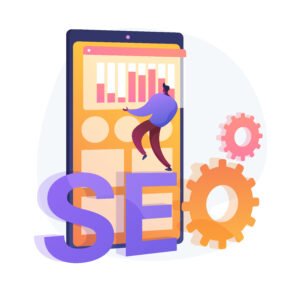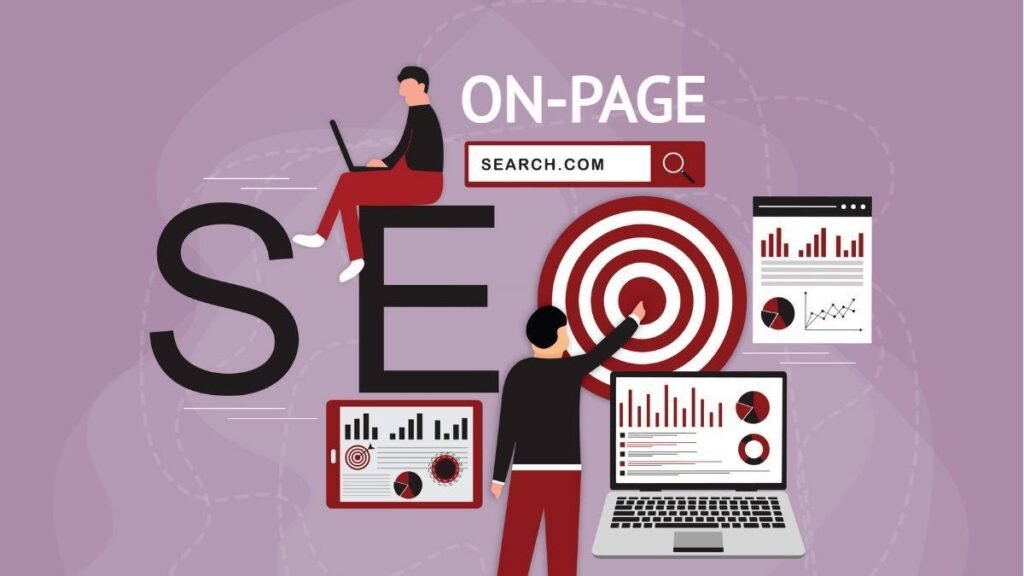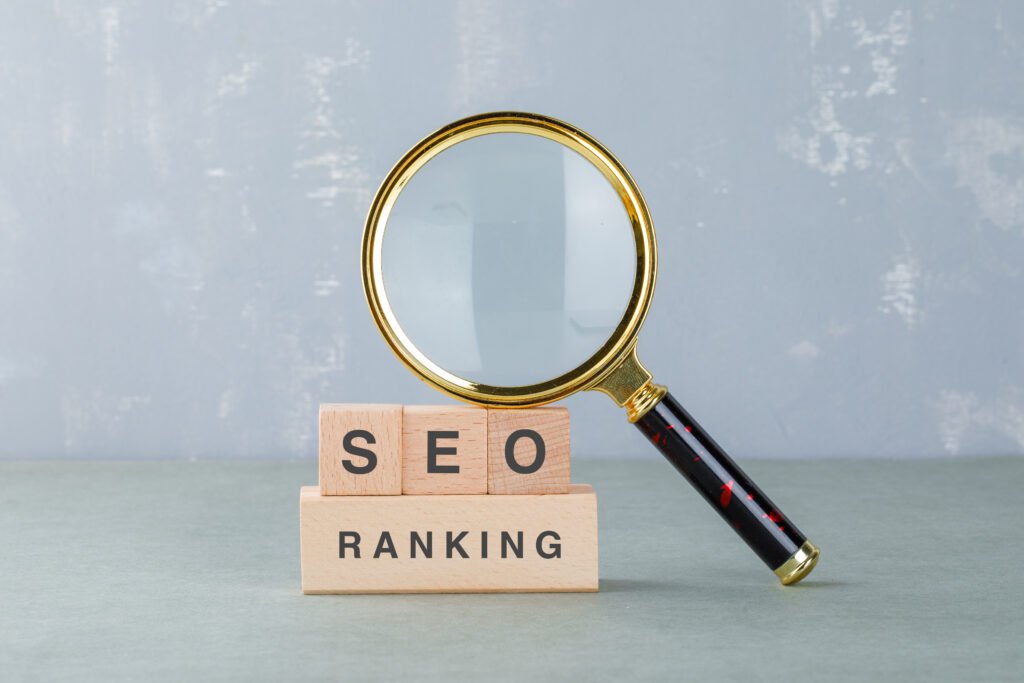Master SEO for 2025: From Organic Traffic to Increased Conversions

Introduction
SEO isn’t just about ranking high on search engines; it’s about aligning your website and content to deliver the best user experience, attract the right audience, and drive sustainable traffic. For businesses, Search Engine Optimization is one of the most effective ways to generate organic leads and enhance their online presence.
In a competitive digital landscape, it’s crucial to understand how Search Engine Optimization works. Whether you’re a small business or an established enterprise, SEO is the key to driving growth, increasing brand visibility, and building trust. At Active Growth Tech, we specialize in customized SEO strategies that help businesses dominate search results, outrank competitors, and grow their customer base.
What is SEO?
SEO stands for Search Engine Optimization, which refers to optimizing various elements of your website to make it more attractive to search engines like Google, Bing, and Yahoo. The goal is to increase the site’s visibility, improve rankings, and drive targeted organic traffic.
Search Engine Optimization isn’t a one-size-fits-all solution. It’s a mix of strategies designed to enhance different facets of your website, from content optimization to technical improvements. For example, on-page SEO includes content development, keyword usage, and site structure, while off-page SEO focuses on backlinks, authority-building, and trust signals. Technical SEO ensures that search engines can crawl, index, and interpret your site’s content.
The Definition of SEO in 100 Words or Less
Search Engine Optimization is the process of optimizing a website to increase its visibility in search engine results. Through a combination of on-page SEO (optimizing content, HTML elements, and structure), off-page SEO (building backlinks and improving authority), and technical SEO (ensuring site health and speed), businesses can improve their search engine rankings. Local SEO (Google My Business) focuses on optimizing for regional searches, while customized Search Engine Optimization targets specific market segments. Search Engine Optimization aims to drive organic traffic, boost authority, and improve the overall user experience—ultimately increasing the number of qualified leads and brand exposure.
How Does SEO Work?

Search Engine Optimization is driven by a search engine’s algorithm, which evaluates a site based on several factors, including relevance, quality, user experience, and technical health. Here’s a deeper dive into how Search Engine Optimization works:
1. On-Page SEO
On-page SEO refers to the techniques and optimizations you apply directly on your website. This includes the following components:
- Keyword Optimization: The foundation of Search Engine Optimization, keyword research helps identify the search terms your target audience uses. Properly incorporating these keywords into your content, headings, URLs, and meta tags ensures that search engines understand what your page is about.
- Content Quality: Content is king in the world of Search Engine Optimization. Engaging, informative, and keyword-rich content not only attracts users but also signals search engines that your site is relevant to their queries.
- Internal Linking: Creating a logical and user-friendly internal linking structure enhances the user experience, makes it easier for search engines to crawl your site, and spreads link equity across pages.
- Mobile Optimization: With the rise of mobile search, ensuring that your website is mobile-friendly is essential. Mobile-optimized websites tend to rank better on search engines.
- User Experience (UX): Search engines like Google prioritize websites that provide a positive user experience. Elements such as intuitive navigation, fast load times, and clear calls to action are essential.
2. Off-Page SEO
Off-page SEO refers to external efforts made to improve a website’s ranking and authority. One of the main components is link-building—the process of acquiring backlinks from reputable and relevant websites.
Backlinks act as “votes of confidence” for your site, signaling to search engines that your content is credible and trustworthy. Other off-page SEO factors include:
- Social Signals: Search engines consider social media activity, such as shares, likes, and engagement, as indirect ranking factors. Engaging with your audience on social platforms can increase brand exposure and drive traffic to your site.
- Brand Mentions: Positive brand mentions on high-authority websites (even without direct links) can help improve your credibility.
- Local Citations: For local businesses, being listed in local directories and map listings can improve your local search rankings.
3. Technical SEO

Technical SEO is the process of improving your website’s technical aspects to enhance its ability to be crawled and indexed by search engines. Some key aspects of technical SEO include:
- Website Speed: Google has stated that site speed is a ranking factor. A slow website can negatively affect rankings and user experience.
- Site Architecture: A clean, logical site structure with a clear hierarchy allows both search engines and users to easily navigate your content.
- Mobile-Friendliness: With mobile-first indexing, having a mobile-optimized website is crucial for good Search Engine Optimization rankings.
- HTTPS Encryption: Google uses HTTPS as a ranking signal. Secure websites are prioritized over insecure ones.
- XML Sitemap & Robots.txt: These technical files help search engines understand which pages to crawl and which to ignore.
What is Organic Traffic?
Organic traffic refers to visitors who land on your website by clicking on links from search engine results, rather than through paid ads. It’s the result of your Search Engine Optimization efforts—whether through on-page optimization, high-quality content creation, or authority-building backlinks.
Organic traffic is highly valuable because it comes from users who actively searched for something related to your business. These are high-intent visitors who are more likely to engage with your content and convert into leads or customers.
What Is Direct Traffic?
Direct traffic is when visitors arrive at your website by typing your URL directly into their browser or by clicking on a bookmark. This type of traffic signifies that the visitor is already familiar with your brand, which often leads to higher engagement rates and conversion potential.
While direct traffic is valuable, Search Engine Optimization helps increase brand awareness and visibility, which can result in more direct traffic over time. This is why Search Engine Optimization and brand exposure go hand in hand.
The Importance of SEO in Business Growth

In the world of digital marketing, Search Engine Optimization is indispensable. Here’s why Search Engine Optimization is vital for business success:
- Increased Visibility and Brand Exposure: Ranking higher on search engine results increases the visibility of your website, helping you attract more visitors and potential customers.
- Enhanced Credibility and Trust: Users tend to trust websites that appear on the first page of search results. An optimized website enhances your credibility and authority in the eyes of both users and search engines.
- Cost-Effective Marketing: Unlike paid search ads, Search Engine Optimization is a long-term strategy that generates organic traffic without continuous investment. Once optimized, your content can continue driving traffic for months or even years.
- Targeted Traffic: Search Engine Optimization helps you target the right audience by focusing on keywords and content that align with their search intent, leading to higher conversion rates.
- Improved User Experience: The various Search Engine Optimization strategies, from website structure to content creation, all aim to enhance the user experience, ensuring that visitors stay longer on your website.
How Much Does SEO Cost?
The cost of Search Engine Optimization can vary greatly depending on the size of your business, the scope of the services you require, and the competitive nature of your industry. Typically, SEO services range from $500 to $5,000 per month, depending on the service provider and your business needs.
Search Engine Optimization costs might include:
- Keyword Research: To identify the most relevant and profitable keywords for your business.
- Content Creation: Writing blog posts, landing pages, and product descriptions.
- Link Building: Acquiring high-quality backlinks to boost your site’s authority.
- Technical SEO Audits: Fixing website issues such as site speed, mobile optimization, and crawl errors.
The return on investment (ROI) for Search Engine Optimization can be substantial, with long-term benefits that justify the initial cost.
What Is Paid Search Engine Marketing?

Search Engine Marketing or Paid search engine marketing (PPC) involves paying for advertisements to appear in search engine results pages. While Search Engine Optimization focuses on organic results, paid search marketing helps businesses gain visibility immediately by targeting specific keywords with ads.
Paid search can complement Search Engine Optimization efforts by driving instant traffic while your organic search rankings improve over time. A well-executed paid search campaign can boost brand exposure and generate leads quickly.
How to Do SEO: A Step-by-Step Approach
- Conduct In-Depth Keyword Research: Use tools like Google Keyword Planner, SEMrush, or Ahrefs to identify keywords that align with your target audience’s needs.
- Optimize On-Page Elements: Ensure your content is optimized for the right keywords, including the title, meta tags, headers, and body content.
- Create Valuable Content: Develop high-quality, informative, and engaging content that satisfies user intent.
- Earn Quality Backlinks: Reach out to authoritative websites and build a backlink profile to improve your website’s domain authority.
- Monitor SEO Performance: Use analytics tools to measure your website’s Search Engine Optimization performance and make adjustments as needed.
Conclusion
Search Engine Optimization is a multifaceted process that drives sustainable, long-term growth for your website. By investing in a well-executed SEO strategy—focused on both on-page and off-page optimization, technical enhancements, and targeted content—you can boost your search engine rankings, drive organic traffic, and grow your business.
At Active Growth Tech, we specialize in crafting customized Search Engine Optimization strategies that align with your unique business needs and objectives. Contact us today to start improving your online presence!
FAQs
- What is SEO?
Search Engine Optimization is the process of optimizing your website to rank higher in search engine results and increase organic traffic through various practices like keyword research, content optimization, and link-building. - How long does it take to see Search Engine Optimization results?
Search Engine Optimization is a long-term strategy, with results typically seen in 3-6 months depending on competition, website authority, and optimization efforts. - What is the difference between On-Page SEO and Off-Page SEO?
On-Page SEO focuses on optimizing content, keywords, and site structure, while Off-Page SEO involves activities like link-building and brand exposure to increase website authority. - Why is technical SEO important?
Technical SEO ensures that search engines can properly crawl, index, and understand your website, which is critical for ranking well in search results. - How much does Search Engine Optimization cost?
Search Engine Optimization services can cost anywhere from $10,000 – $30,000 per month, depending on the complexity of your needs and the competitiveness of your industry.







